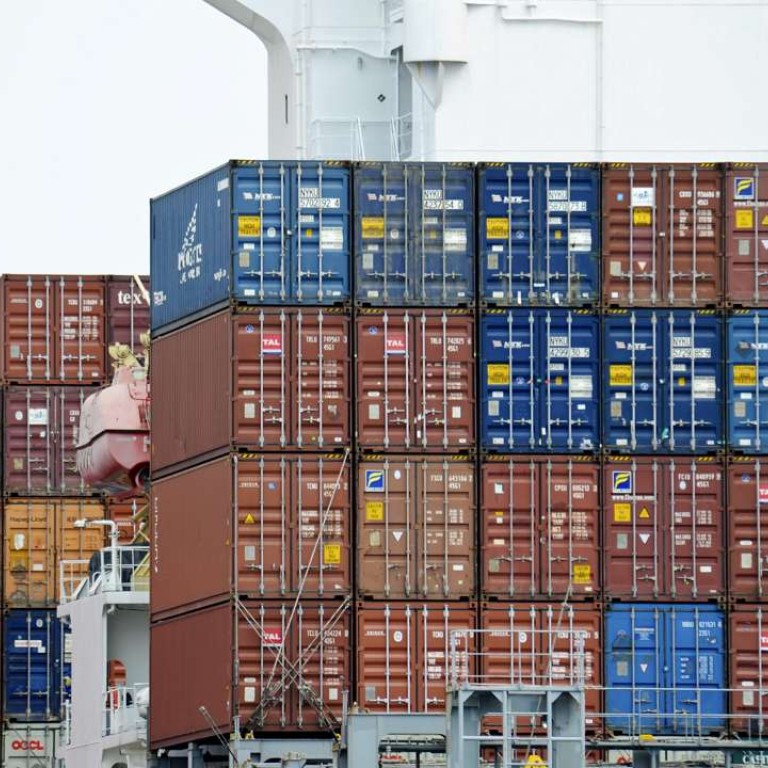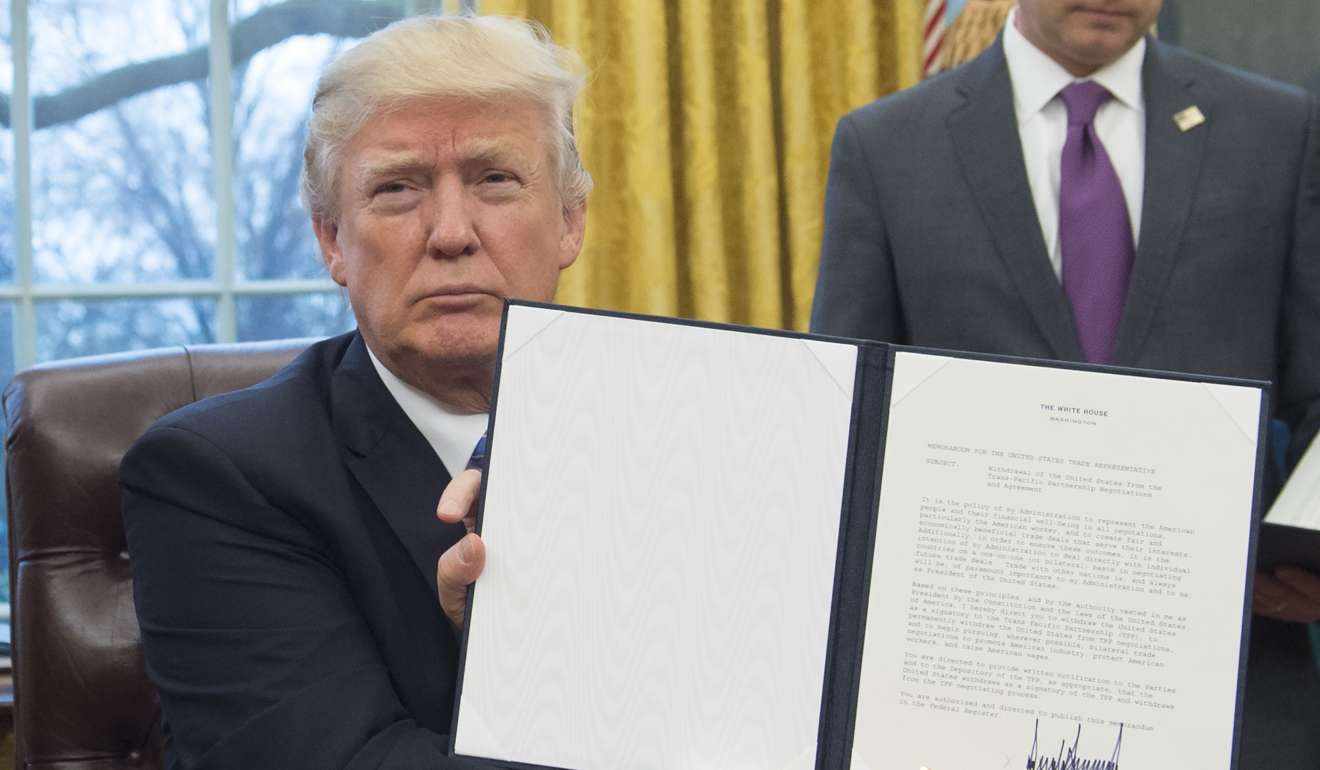
China takes wait-and-see approach to ongoing talks over stalled Pacific Rim trade deal
Beijing interested in joining meeting on stalled Trans-Pacific Partnership but is likely to remain on sidelines gathering details – at least for now
China is expected to attend a meeting held by countries that signed up for the stalled Trans-Pacific Partnership (TPP) trade pact this week, as Beijing works out its role in cementing trade deals in the Asia Pacific region, observers said.
Beijing was sceptical of the TPP, viewing it as part of an effort by Washington to contain China, as the country was excluded from the deal spearheaded by the former US administration of Barack Obama.
However, the fate of the pact is in limbo as US President Donald Trump announced the US’ withdrawal on his first day as president. Observers are now waiting to see whether China can fill the leadership vacuum left by the US, or push forward its own Regional Comprehensive Economic Partnership pact.
Representatives from the TPP’s 12 member countries will meet Tuesday and Wednesday in Santiago, capital of Chile, to explore possible deals without US involvement.
China was “positively looking at” participating in the meeting after receiving an invitation, foreign ministry spokesman Geng Shuang said on Friday.
Geng said China supported regional economic integration and was willing to strengthen dialogue with Chile and other countries involved, help build an Asia-Pacific free-trade agreement, create an open economy and inject vitality into the development of the regional and global economy, he said.

When it was signed in February last year by the countries representing about 40 per cent of the world’s economic output, the TPP was expected to set the bar for international free trade, with relatively robust standards for environmental protection, workers’ rights and regulatory coherence.
But by pulling the United States out, Trump has effectively killed the deal, as the pact requires ratification by least six countries with 85 per cent of the group’s gross domestic product, and the US alone accounts for 60 per cent.
Japan has ratified the deal and still hopes to bring Trump back on board. The president claimed the pact would harm American employment and sovereignty. Australia has suggested China takes place of the US in the deal.
With Trump showing protectionist approaches, Beijing’s attitude towards the TPP has subtly shifted, observers said, adding China wanted to learn from the TPP.
China has not made it clear whether it would join the pact, but it is pushing forward the Regional Comprehensive Economic Partnership, a proposed free-trade agreement between the 10 member states of the Association of Southeast Asian Nations and six other nations, including China and Australia.
A researcher from an institute affiliated with the Chinese government said Beijing could be interested in learning about the negotiation process for the TPP, how the group was supposed to operate, and what trend the new rules and options of international trade it represented.
“It is necessary to China to learn from it,” the researcher said on condition of anonymity. “But we will reserve our rights to choose, until we decide which rules we would like to accept and which we would not, and until we make sure we can be the leader in the group,” he said.
Jin Canrong, a professor of international relations at Renmin University, said even though Trump might have created an opportunity for China, Beijing will not be hasty in assuming leadership in trade deals.
“Chinese policymakers have not yet made up their mind about the TPP, or about replacing the US to lead globalisation,” he said.
“To focus on a lower standard [regional deal] is likely to be a more pragmatic choice for now,” Jin said.

